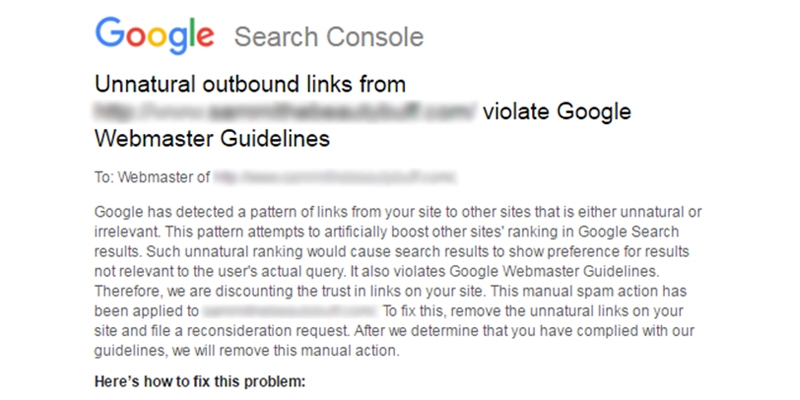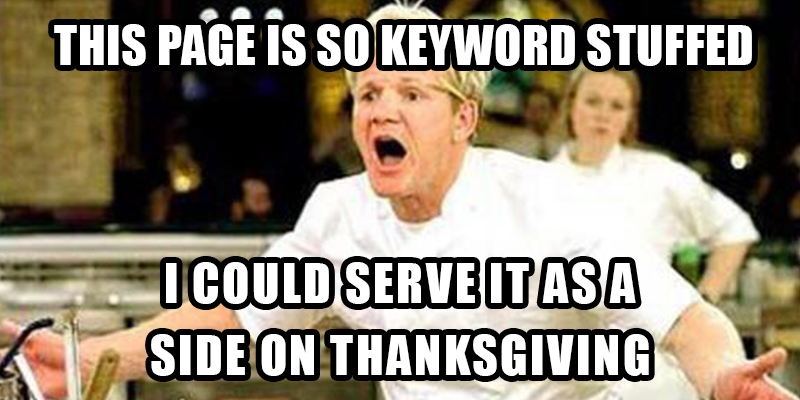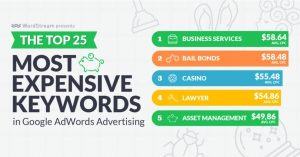— December 24, 2018
Have you been a good SEO all year long? If you’ve been following Google’s Webmaster Guidelines and creating super helpful, unique content, the search engine might give you the greatest gift of all: organic results.
But before you wait by the tree for those improved rankings, put down your cookies and milk. You might not see your website on the search engine results pages (SERPs) if you have been naughty this year!
Here’s six things that could put your URL on Google’s penalty list:
1. Copying a Page Verbatim, Without Permission
This one seems like a no-brainer, but Google won’t be putting you at the top of its ranking tree this holiday if you are stealing like a big, ol’ Grinch!
Even just copying a few lines from another page shows the search engine that your content isn’t unique. Your copied content is likely taken from a source that’s already ranking (because that’s how you found it!), and you certainly won’t be adding more value than the original source by regurgitating what was already said.
You’re simply not going to improve your organic results this way, and you could be reported to Google’s DMC and be involved in legal action, if the theft is severe. Not exactly the best way to start the new year!

If you are piggybacking on an idea from another source, be sure to give credit where it’s due by linking out. Then, get creative with your personal take on the matter, using your words— not theirs.
Does this apply to posting your own written content on different domains? That’s called content syndication, and when done strategically, is very different from stealing someone else’s work. Google is smart enough to discern the original source and won’t penalize you if you follow the steps outlined in the linked article.
2. Misleading Redirects
If a page is already ranking well, some sneaky SEOs might try to steal that page’s link juice and authority by placing a misleading redirect on the URL. Black Hatters do this by displaying content that’s different than what Google’s crawlers see.
How does it work? Tricky coders can mask the redirect so that the search engine indexes the original page, not the new content. Google (and Santa) don’t like being lied to, and users don’t like being taken to somewhere different than expected.

FIX IT: If you are redirecting a page, make sure you are sending users to a relevant page and not trying to trick the Googlebot or your audience.
3. Shady Link Building
If you’re singing “All I Want for Christmas is Backlinks,” you’re not alone. SEOs understand that a huge Google ranking factor is backlinks. In fact, it’s one of the eight reasons small businesses aren’t showing up on page one of the SERPs.
The problem is, building backlinks takes time. Users naturally link to your content because they find it helpful— and it can take months, or even years, to build a strong backlink profile for your domain.
Sometimes, naughty SEOs don’t want to wait, so they find themselves on Fiverr buying mass backlinks from some stranger in a foreign country, promising “1,000 quality links in 24 hours!” This effort to boost your PageRank violates Google’s Webmaster Guidelines, qualifying as what the search engines calls a “link scheme.”

For those who break the rules, hope you like coal this holiday. Not only will these sudden mentions alert Google’s algorithm of strange activity, but Google will likely send you a message that Manual Action has been taken to punish your site, like the message above. You’ll have to disavow these bad links and then hope you’ll get back on good terms with the search engine once the Webmasters reassess your site.
FIX IT: Ensure you don’t have spammy backlinks by following the instructions under their “Unnatural links from your site” dropdown. Then, get links the right way with this expert advice.
4. Keyword Stuffing
When you flood your content with a high volume of keywords, you not only risk being seen as spammy or inauthentic by your audience, but you will face Google’s punishment.
Keyword stuffing comes in many shapes and sizes, but it’s usually engulfing your content repetitively with one phrase or term, over and over.
This ties in heavily with our warning against shady link building, although the two don’t have to be exclusive. Creating many keyword-heavy anchor text links is just asking Google to penalize you, as the search engine will see your suspicious backlink profile.

If caught keyword stuffing red-handed, the search engine might revoke your rankings. Remember, the only kind of stuffing you want to do this holiday season is stocking stuffing, so avoid packing your content with excessive or irrelevant keywords.
FIX IT: Rank with the right keywords by incorporating them appropriately. It also helps to understand that Google is changing the way it ranks— and while keywords still matter, content which addresses topical association is taking the lead on the SERPs.
5. Abusing Structured Data Markup
Elite SEOs think they can outsmart Google by manipulating their website’s code. Google Search uses this structured data to enable special search result enhancements, like featured snippets, which often rank above the organic results on the SERPs.
Basically, these Black Hat SEOs sometimes interlace strings of commands to tell the search engine how to organize and prioritize the data, thinking they’ll game the ranking system.

They code the markup so that nothing is visible to viewers (only bots), to be sneaky— which is a big no-no in Google’s structured data guidelines. In many instances, the structured data is not representative of the actual content, or is intentionally misleading.
Let’s say you don’t even know how to do this, could someone with previous access to your website have manipulated your code, hurting your current rankings?
FIX IT: Give your team the gift of peace of mind this holiday by running your URL through Google’s Structured Data Testing Tool. If there’s any naughty penalties, the search engine will bring them to light.
6. Duplicate Metadata
If you run a report through Screaming Frog’s SEO Spider or a similar website screening tool, you might be surprised to find that your domain has something called “duplicate metadata errors.”
If all your metadata is the same, you’re not offering a unique experience to tell users what your information is about— and this duplicate data could affect your SEO and confuse viewers.

Your meta description, for instance, is served whenever your site appears on the SERPs, to help users learn more about your company before clicking through. If it’s not relevant or enticing enough, it could deter visits.
Or, if your images aren’t optimized with original file names or alt text, every file will look the same in the eyes of Google. Not to mention, if an image doesn’t load correctly, the alt text will display something inaccurate to viewers.
FIX IT: Once you run your URL through Screaming Frog, replace your duplicate metadata with unique, relevant descriptions.
Digital & Social Articles on Business 2 Community
(45)
Report Post







